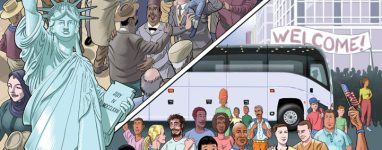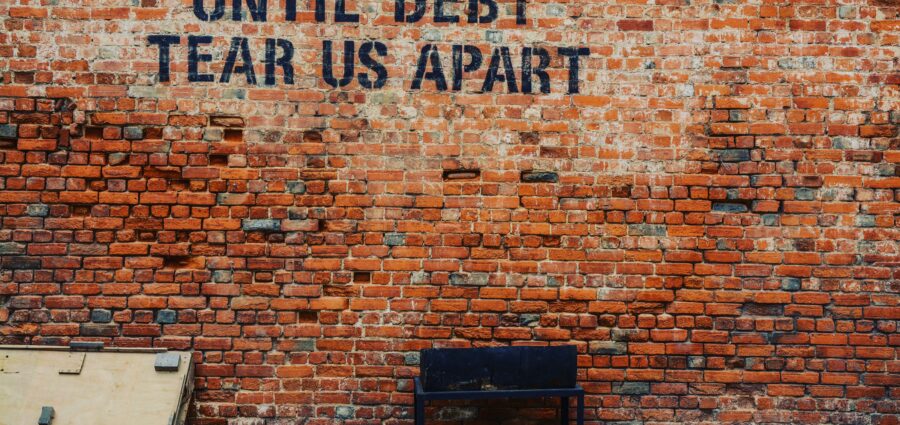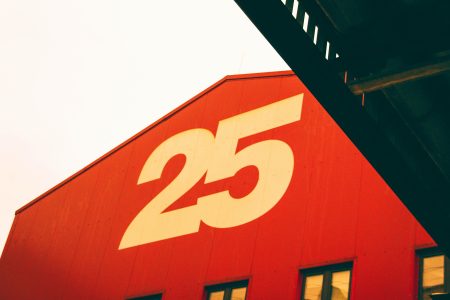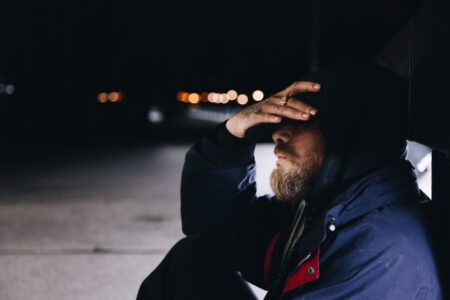Department of Consumer and Worker Protection (DCWP) Commissioner Lorelei Salas today announced the release of a report titled “Unequal Burden: Black Borrowers and the Student Loan Debt Crisis.” The report explores inequities in borrowing and the connections to the racial wealth gap, school quality and outcomes, and difficulty repaying. Higher education is glorified as a pathway to equal opportunity but often contributes to racial and generational wealth gaps.
Previous DCWP research found that rates of student loan default are higher in predominantly Black neighborhoods than in predominantly White neighborhoods. This finding led DCWP to expand its research on Black borrowers and the difficult barriers they face. In New York City, the research finds that the roots of student loan debt crisis for Black borrowers is directly connected to ongoing systemic disparities going back decades. This is the second in a series of three reports about communities who are most vulnerable to student loan debt and/or are vulnerable to predatory targeting by for-profit schools – DCWP’s first report on veterans was issued in March.
“During this pandemic, we have seen Black Americans affected disproportionately – more than twice as likely to die than White Americans – but that is not where the inequality starts or stops. From the wealth gap to student loan debt, Black Americans have dealt with an unequal burden for a long time,” said DCWP Commissioner Lorelei Salas. “Through our Office of Financial Empowerment, we are committed to finding solutions that help Black New Yorkers by offering financial counseling and educational resources and advocating for legislation and policies to address inequities.”
“The student debt crisis is a civil rights issue. As this research confirms, student debt disproportionately affects borrowers of color, exacerbates the racial wealth gap, and furthers systemic inequality,” said SBPC Executive Director Seth Frotman. “Addressing this crisis is critical to furthering racial equity. The New York City Department of Consumer and Worker Protection is a leader in this important consumer protection work and its groundbreaking research that spotlight systemic inequities facing Black student loan borrowers.”
The report provides a brief overview of the layered and complex struggles Black Americans have faced and still face today beginning with a major contributing factor – racial inequities in borrowing. DCWP highlights a few factors that make Black student borrowers vulnerable to student loan debt and how they are interconnected.
Key Takeaways:
- Racial Inequities in Borrowing
In predominantly Black and Hispanic neighborhoods in New York City where 70 percent of New York City’s Black residents live, student loan debt holders have debt in collections at twice the rate as borrowers in predominantly White and Asian neighborhoods, 16 percent compared to 8 percent.
- The Racial Wealth Gap
Prospective students typically rely on either family wealth or borrowing to fund higher education. Home ownership is key to building wealth but Black households in New York City are less likely to own homes and even for those that do, there are racial disparities in property value. As a result of racial wealth disparities, Black students typically borrow more to finance their higher education.
- School Quality and Higher Education Outcomes
Black students on average get their degrees from less selective and lower performing schools, revealing a direct outcome of lower Black wealth accumulation. Black students in New York City attend for-profit schools at a higher rate than their peers. Many Black students attend for-profit institutions that on average are shown to have higher net prices, higher borrowing rates, lower graduation rates, worse employment outcomes; and higher student loan debt default rates.
- The Labor Market and Difficulty in Repaying
When Black young adults enter the labor market, a college degree is no guarantee of financial security, as many Black college graduates experience the unjust effects of the racial wage gap. Several factors contribute to Black graduates receiving a lower college wage premium compared to their White peers, including educational quality gap, occupational segregation, credential gap, and labor market discrimination. In New York City, we found wages for the median Black Bachelor’s degree holder to be nearly $22,000 lower than the wage of a White bachelor’s degree-holder.
Our report indicates the immediate need to address racial disparities in all areas including the education gap. If structural racial inequities are left unaddressed, Black borrowers in New York City, as well in the rest of the country, will continue to struggle to repay debt, which will perpetuate higher default rates for Black borrowers and contribute indefinitely to the racial wealth, education quality, and wage gaps, and vice versa.
The City has already taken steps to address disparities. DCWP launched public awareness campaigns in June 2018, When it comes to money, we could all use a coach sometimes, and in April 2019, Be Real About Student Loans, targeted to borrowers in key vulnerable neighborhoods. To address homeownership inequities, the City has two programs: HomeFirst Down Payment Assistance Program and Open Door Program. To ensure more students are prepared to attend higher-quality postsecondary schools, Mayor Bill de Blasio and the NYC Department of Education (DOE) launched Equity and Excellence for All and Diversity in Admissions, to ensure our school system better reflects the diversity of New York City.
“Black families continue to be left behind on key sources of wealth building for which white families have been able to create future wealth for their children, weather times of crises and access high quality education without breaking the bank,” said Louise Carroll, Commissioner of the New York City Department of Housing Preservation and Development. “All families deserve fair pathways to wealth creation, and with the pandemic making life harder for households of color especially, there is a clear imperative to invest in closing the racial wealth gap and to provide these families with the same security that many others enjoy.”
New Yorkers’ financial health is of particular concern for DCWP’s Office of Financial Empowerment. When it comes to higher education, DCWP wants residents to have the ability to pursue an affordable degree, graduate, and become gainfully employed at a comfortable salary—without student loan debt stress.
DCWP created Important Information for Student Loan Holders: Automatic Payment Suspension and Other Relief During CoViD-19 to help student loan borrowers understand how they may be affected. Under the Coronavirus Aid, Relief, and Economic Security (CARES) Act, federal student loan payments were suspended, without interest or penalties, until September 30, 2020. Payments on federal student loans are scheduled to automatically restart on October 01, 2020. If your financial situation has changed and/or you are unable to afford your payments, DCWP encourages you to visit an NYC Financial Empowerment Center to discuss your options. Counselors can help navigate information on and applications to Income Based Repayment Plans, which could make payments as low as $0.
Any New Yorker who needs help navigating loan repayment options, is struggling with debt, or is planning to take out future student loans can make an appointment for free, one-on-one financial counseling by phone with one of DCWP’s 30 Financial Empowerment Centers throughout all five boroughs. To make an appointment for financial counseling or to download tips about student loans, visit nyc.gov/StudentLoans. DCWP also encourages New Yorkers to #TalkStudentLoans on social media (@NYCDCA on Twitter, Facebook and Instagram).
About Department of Consumer and Worker Protection
NYC Department of Consumer and Worker Protection (DCWP) protects and enhances the daily economic lives of New Yorkers to create thriving communities. DCWP licenses more than 75,000 businesses in more than 50 industries and enforces key consumer protection, licensing, and workplace laws that apply to countless more. By supporting businesses through equitable enforcement and access to resources and, by helping to resolve complaints, DCWP protects the marketplace from predatory practices and strives to create a culture of compliance. Through its community outreach and the work of its offices of Financial Empowerment and Labor Policy & Standards, DCWP empowers consumers and working families by providing the tools and resources they need to be educated consumers and to achieve financial health and work-life balance. DCWP also conducts research and advocates for public policy that furthers its work to support New York City’s communities.
For more information about DCWP and its work, please call 311 or visit DCWP at nyc.gov/dcwp or on its social media sites Twitter, Facebook, Instagram and YouTube.








